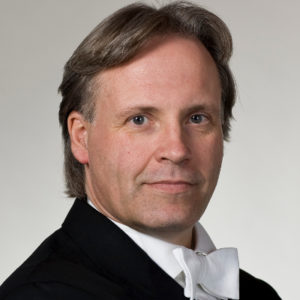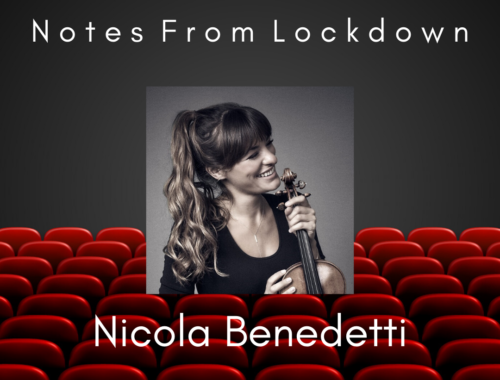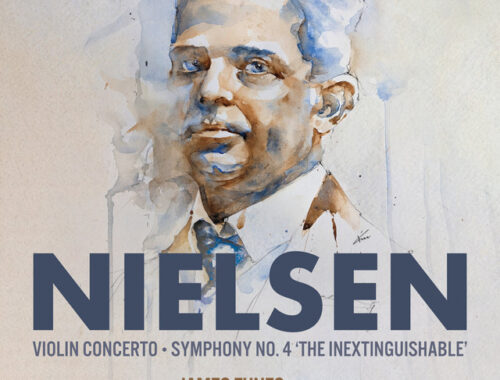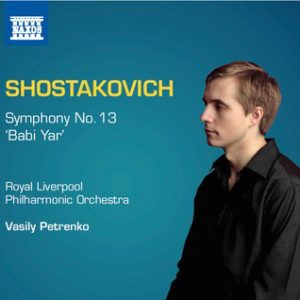Prom 64, Berlin Philharmonic Orchestra, Rattle, Royal Albert Hall
 They were, of course, applauded on to the platform – all of them – and when at the close Simon Rattle turned to us and said “I think you know this already but there is no audience in the world like this one” the tacet response was surely implicit that there is no orchestra in the world quite like the Berlin Philharmonic. We had indeed been a good audience, listening harder and more intently as Rattle explored a whole range of seemingly uncharted dynamics below pianissimo in a stupendous performance of Stravinsky’s The Firebird – but from the moment trenchant string chords issued a mandatory invitation to the first of Rachmaninov’s Symphonic Dances hearing was believing the unanimity of attack and depth of sound that once again caught us unawares.
They were, of course, applauded on to the platform – all of them – and when at the close Simon Rattle turned to us and said “I think you know this already but there is no audience in the world like this one” the tacet response was surely implicit that there is no orchestra in the world quite like the Berlin Philharmonic. We had indeed been a good audience, listening harder and more intently as Rattle explored a whole range of seemingly uncharted dynamics below pianissimo in a stupendous performance of Stravinsky’s The Firebird – but from the moment trenchant string chords issued a mandatory invitation to the first of Rachmaninov’s Symphonic Dances hearing was believing the unanimity of attack and depth of sound that once again caught us unawares.
The overriding quality of the Berlin Philharmonic lies in the extraordinary freedom and flexibility within their masterly ensemble. You feel secure in their precision but equally you marvel at the soloistic invention and imagination of the playing. As limpid woodwind filigree festooned the solo saxophone lament of the first dance we listened to the whole texture for a change not just the “tune” and when the strings offered that rosy recollection of Rachmaninov’s First Symphony as a gesture of forgiveness to his lost homeland the emotion behind it completely transcended the beauty of the sound.
The haunted ballroom of the central waltz brought a tarnished opulence and – in the hushed return – a ghostliness which the lugubrious bassoon counterpoint again made so sorrowful. Rarely has homesickness found a voice quite like Rachmaninov’s. The ache of the middle section of the finale conveys a yearning beyond anything he was ever able to express and when finally his demons corner him (the Dies irae in pursuit) Rattle managed to achieve the impossible in my experience and silence his audience with not one but two tam-tams resonating into the abyss. I still find it strange that Rachmaninov didn’t clarify things by writing “laiser vibrer” over this final note as he did several bars earlier but the clue, I guess, is in the longer note value for the tam-tam over the rest of the orchestra (though not everybody sees it as a license to resonate across the double barline) and the effect is terrific if you do manage to stop the audience in their tracks and disastrous if you don’t.
Stravinsky’s complete Firebird has been a calling card for Rattle since his earliest days in Birmingham but I have never heard a performance from him or indeed anybody else of such all-consuming ravishment. So furtive was our approach to Kashchey’s enchanted garden with near-inaudible string basses scenting the magic therein that all six thousand of the audience seemed to lean into the sound. That’s was thing about this performance – it drew us in, it invited us to listen differently. I’ve rarely heard such quiet in the Albert Hall: a case of having to, so refined were the dynamics. This was the shot-silk treatment and then some – all fragrance and beautiful muted shadings. The Firebird’s dance was truly diaphanous, the Round Dance with its haunting solo oboe exotic in the best sense, and the Lullaby from lachrymose bassoon was almost indecently gorgeous.
Equally there was spectacle with the Magic Carillon pulling in trumpets from three points of the arena stalls and an Infernal Dance of scintillating brilliance, fizzing violins almost coming out of their seats in the closing bars. And was there ever a quieter pianopianissimo than that which brought Profound Darkness and rebirth at the close. Typical of Rattle is his shaping of the triumphal final brass chorale with the biggest and most radiant sound coming only with the climactic chord of the phrase. On the cusp of perfection, I think.
There was an encore – a surprising one: the Intermezzo from Puccini’s Manon Lescaut, all dark saturating strings and bags of ardour. It almost sounded Italian.
image: Sir Simon Rattle conducts the Berliner Philharmoniker at the BBC Proms 2014.Credit/Copyright: BBC/Chris Christodoulou
You May Also Like

A Conversation With MARKUS STENZ
02/09/2010
NOTES FROM LOCKDOWN: Nicola Benedetti in Conversation
16/06/2020
